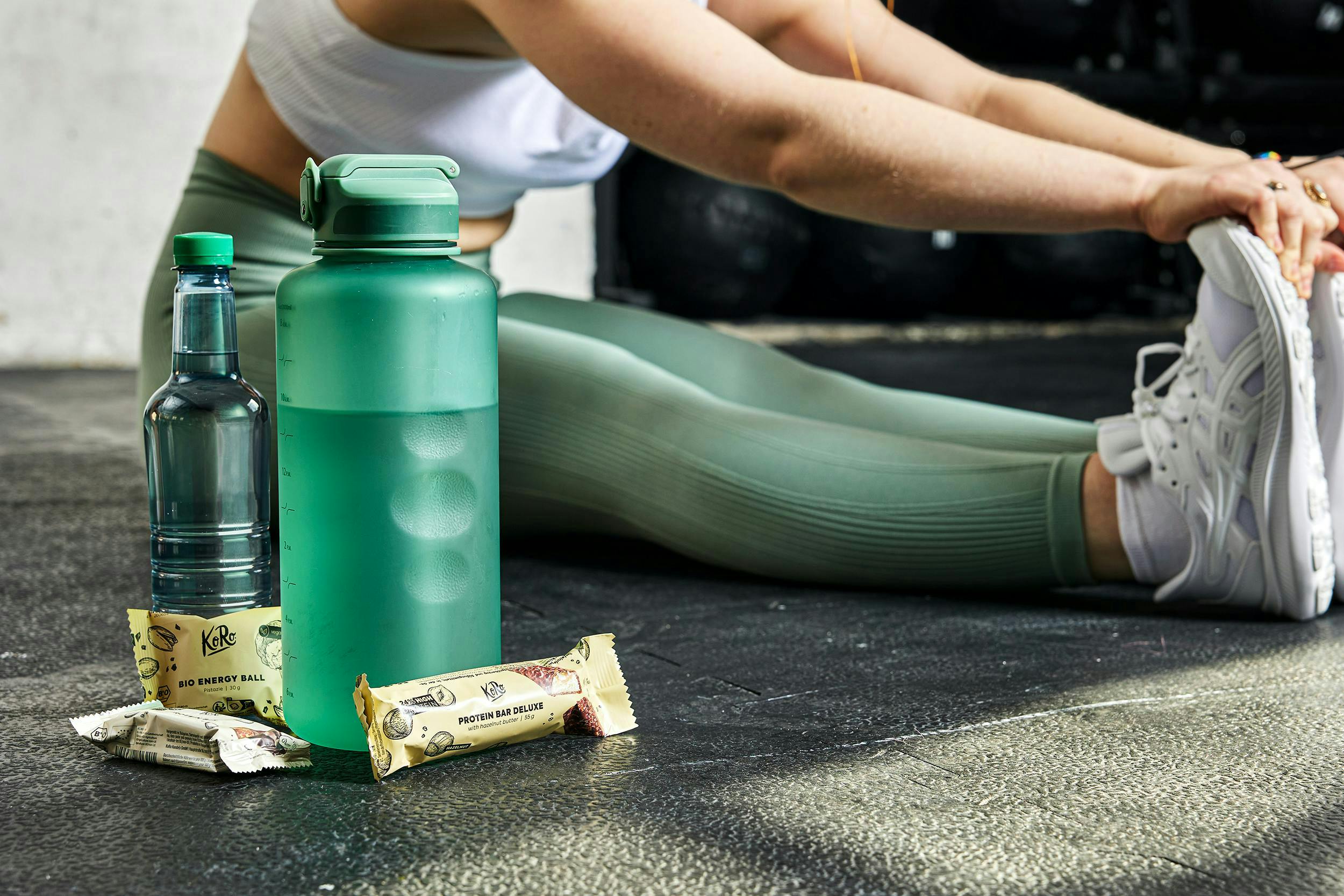
Stress reduction
We are probably all familiar with stress. This is right and important, because a normal stress response enables us to react "fight or flight" in stressful or dangerous situations and increases our performance. However, if this stress mutates into a permanent condition, i.e. becomes chronic, it has a negative effect on our body. For example, it can increase our susceptibility to infections as well as our blood pressure. If we were to ask you where stress arises in the body, your answer would probably be the brain, right? This is correct in principle, but not the whole truth. Did you know that the brain is connected to the gut? There's even a name for it: the gut-brain axis. Communication usually takes place via the vagus nerve and the intestines are clearly the more talkative part: 90% of the information is transmitted from the intestines to the brain! This is because, in addition to the intestinal flora, there are also several hundred million nerve cells in the intestine, which together form the completely autonomous enteric nervous system. However, the many intestinal microbes, which we discussed in more detail in Part 1, are also involved in communication. It is still unclear exactly how the brain and gut work together, but there are already some findings - for example, the sending of messenger substances and the formation of neurotransmitters such as serotonin happen as a team. However, when hormones such as adrenaline or cortisol are released by the brain, this is a sign for the body to increase its willingness to perform. As a result, the heartbeat and breathing speed up, while digestion slows down - because it is not essential for survival at this moment. In the case of chronic stress, however, this mechanism can lead to intestinal problems and constipation. The intestinal flora is also altered by frequent stress and the beneficial bacteria are destroyed. These include the lactic acid-producing lactobacilli and bifidobacteria, which incidentally produce the amino acid tryptophan. This in turn is involved in the production of serotonin. The two bacteria can also help to reduce cortisol levels. Cortisol is released during stress and helps us to concentrate and be on alert. However, too much stress causes cortisol to be released permanently, which can lead to insomnia and high blood pressure, among other things. If lactobacilli and bifidobacteria are reduced as a result of too much stress, this can lead to a serotonin deficiency and increased cortisol levels.
Colon cleansing - useful or humbug?
You may have heard of colon cleansing or intestinal rehabilitation. The term refers to the cleansing and subsequent development of new intestinal flora in order to remove all "bad" bacteria and thus combat acne, obesity or allergies, for example. However, there are still no studies that prove that colon cleansing has a positive effect. A colonic irrigation is often carried out at the beginning of the process, where water is flushed through the bowel until it comes out clear. However, this type of mechanical cleansing can lead to irritation of the intestinal flora and is rather detrimental to the development of healthy intestinal flora. Furthermore, the gut does not need a 180-degree turnaround when it comes to changing the intestinal flora. With a balanced diet, exercise and little stress, beneficial bacterial strains will settle over time all by themselves.
Exercise
The gut loves exercise, and by that we don't necessarily mean the intensive HIIT sessions and their trainers that you might be afraid of. Your gut prefers something more relaxed, such as a walk. This moderate exercise promotes intestinal activity and therefore digestion. Yoga also seems to have a positive effect on the bowel, as the different bends of the upper body also stimulate bowel movement. It therefore makes a difference to intestinal health whether the sport you do is performance-oriented or health-oriented. Competitive sport is often associated with stress for the body and can have a detrimental effect on an already weakened intestinal flora. Studies show that the 150 minutes of exercise per week recommended by the DGE have a positive effect on the intestinal flora. However, these changes are more likely to be linked to people of normal weight, as obesity is often associated with an unhealthy diet and this prevails despite the positive properties of exercise and its influence on the gut microbiome.
Probiotics and prebiotics
You may have come across these two terms before. But what are they actually about? No worries, we'll enlighten you: Probiotics are live strains of bacteria that are supposed to build up healthy intestinal flora and are found in foods such as yogurt, sauerkraut, pickles and other, mainly fermented foods. Prebiotics, in turn, are used as food by the probiotics, allowing them to multiply in the gut and grow a beneficial gut microbiome. Prebiotics are mostly dietary fibers found in fruits, vegetables and legumes. So you don't need to buy expensive capsules, but can rely on familiar foods.
However, the effect of probiotics on the formation of beneficial bacterial strains in the gut has not been clearly proven and for this reason may no longer be advertised. The situation is different for certain intestinal diseases such as irritable bowel syndrome or after treatment with antibiotics, as the intake of probiotics and prebiotics can have a positive effect here. However, if you are affected by an intestinal disorder, you should always discuss a targeted intake with your doctor beforehand.
Conclusion
If you have read our two-part Gut Care series, you are now well informed about how you can do something good for your intestinal flora. And conveniently, the various tips are easy to integrate into your everyday life, from a high-fiber and balanced diet to moderate exercise and stress reduction. Incidentally, these changes can not only support your intestinal flora, but also have a positive influence on numerous other physiological aspects of your body. So, put your relationship with your gut on your to-do list or make it one of your New Year's resolutions!